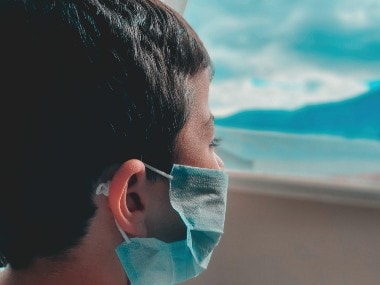When the COVID-19 pandemic began, children were believed to be at a comparatively lower risk of developing severe symptoms or complications due to the viral infection. However, cases all over the world in recent months have shown that parents of young children and adolescents not only need to be cautious of COVID-19 but also of the multisystem inflammatory syndrome (MIS-C) that’s showing up in kids suffering from the former across the globe. According to the World Health Organization (WHO), reports of MIS-C first emerged in Europe and North America, where clusters of children admitted to intensive care units due to COVID-19 had “a multisystem inflammatory condition with some features similar to those of Kawasaki disease and toxic shock syndrome”. Initial lab testing has confirmed that this condition may be related to COVID-19, and children suffering from it have been given anti-inflammatory treatment, including intravenous immunoglobulin therapy. [caption id=“attachment_8240441” align=“alignleft” width=“380”]  Representational image. Image by Andrés Dávila from Pixabay.[/caption] A similar case was noted in an eight-year-old patient in Chennai recently, which brings the threat of this condition related to COVID-19 closer to home for all parents in India as well. So, here’s everything you need to know about MIS-C.
How is multisystem inflammatory syndrome different from Kawasaki disease?
Kawasaki disease generally affects infants and children below five years, and it causes inflammation in some blood vessels - which, according to the US Centers for Disease Control and Prevention (CDC), often leads to acquired heart disease and complications like coronary artery dilations and aneurysms. According to the Los Angeles Children’s Hospital, MIS-C - also known as hyper-inflammatory syndrome in children or pediatric inflammatory multisystem syndrome (PIMS) - is a new condition observed in children who have been infected with COVID-19, have recovered from it or are recovering, and have an immune response which leads to severe inflammation in multiple organs. Because MIS-C shares similarities with other inflammatory syndromes like Kawasaki and toxic shock syndrome, it might be difficult to diagnose this condition specifically in its early stages. For this reason, the WHO, pediatric doctors and researchers across the world are speeding up research into this new condition related to COVID-19.
Symptoms to look out for
Unfortunately, there is very little that’s known about MIS-C currently and only further research will ascertain exactly how it occurs and particularly why COVID-19 causes such an immune response in children. Still, there are a few details that are known. MIS-C is not contagious, but it’s likely to occur to children who’ve had COVID-19 and have developed the antibodies for it too. MIS-C is also not limited to children who suffer from other chronic or significant illnesses that compromise the immune system. The following are some of the key symptoms of MIS-C as per the WHO:
- Child/adolescent aged 0-19 years has a fever for three or more days
- Rash, purulent (with pus discharge) conjunctivitis or signs of inflammation in the mouth, hands and feet
- Low blood pressure and/or shock
- Cardiological or coronary abnormalities in ECHOcardiograms
- Coagulopathy, or bleeding disorder
- Acute gastrointestinal problems like diarrhoea, vomiting and abdominal pain
- Elevated markers of inflammation without other microbial causes like bacterial infections, streptococcal shock syndrome, etc
_For more information, read our article on COVID-19 and Children._ Health articles in Firstpost are written by myUpchar.com, India’s first and biggest resource for verified medical information. At myUpchar, researchers and journalists work with doctors to bring you information on all things health.


)

)
)
)
)
)
)
)
)



